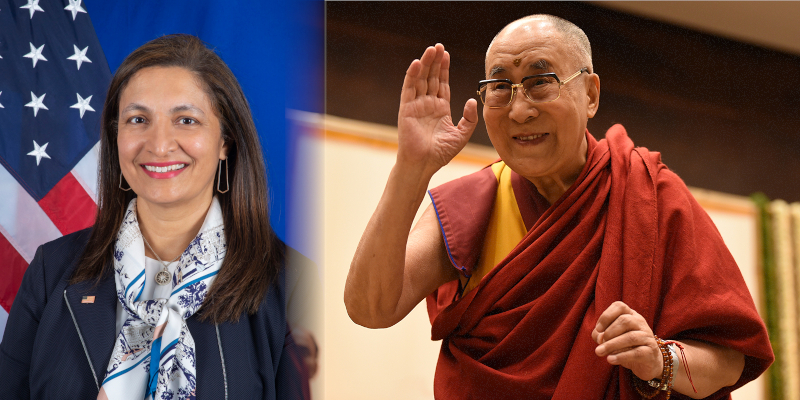Dharamshala, 15th January: Uzra Zeya, the US Special Coordinator for Tibetan Issues, expressed the US administration’s strong commitment to human rights on Friday, calling on China to engage in direct dialogue with the Dalai Lama or his representatives without preconditions in order to achieve meaningful autonomy for Tibetans.
In an interview with Tibet TV, She described her job as ‘sees the role as fully reflecting President Biden’s commitment to center human rights and democratic values in the US foreign policy writ large. She expressed her own commitment to working with the international community and engaging officials from the People’s Republic of China (PRC) on advancing Tibetan human rights and preserving their unique historical, religious, cultural, and linguistic rights, including calling on the PRC to stop interfering in the Dalai Lama’s and Tibetan Buddhist religious leaders’ selection and veneration.
She went on to say that part of her job entails calling on the PRC to stop spying on Tibetan diaspora populations all over the world, especially in the United States. According to a post on tibet.net, she urged the PRC to engage in direct discussion with His Holiness the Dalai Lama or his representatives without preconditions to address issues and establish meaningful autonomy for Tibetans.
She stated that she aims to engage closely with partners throughout the US administration, the US Congress, and like-minded partners and governments in the international community to revive Sino-Tibetan communication. Resuming Sino-Tibetan communication is a cornerstone of the special coordinator’s position, according to the Under Secretary of State for Civilian Security, Democracy, and Human Rights, and something she will continue to advocate for.
She went on to say that the US government feels the best option for long-term security in the region is a negotiated accord that gives Tibetans significant autonomy while also ensuring the preservation of their religion, culture, and language.







Leave a Reply